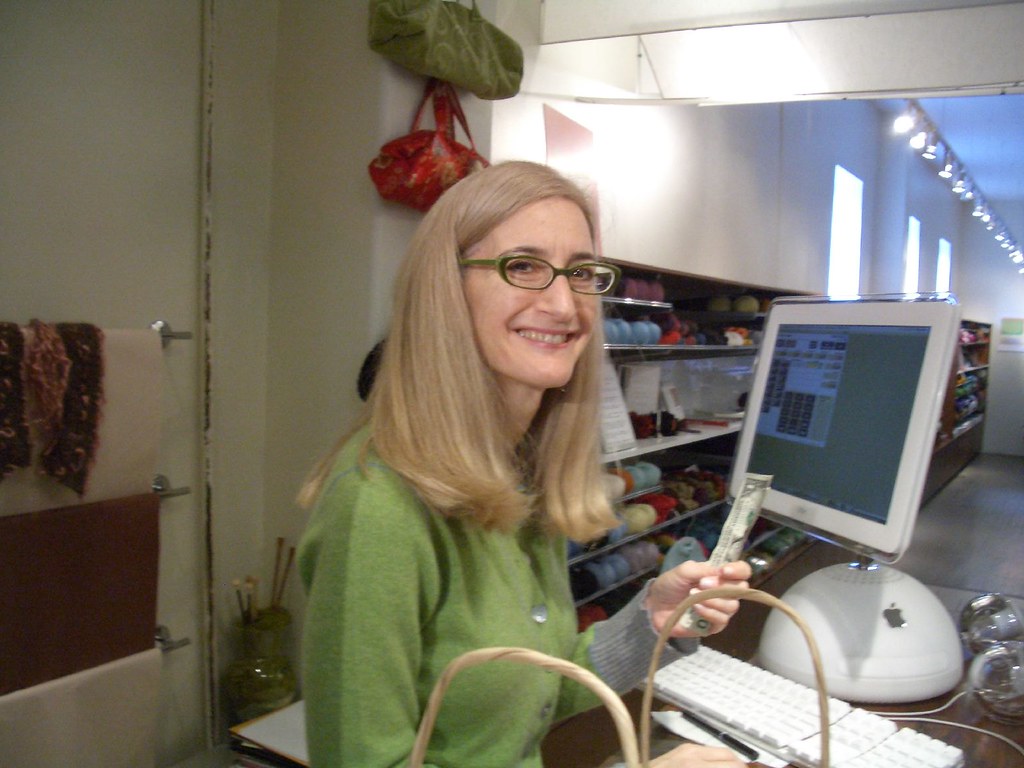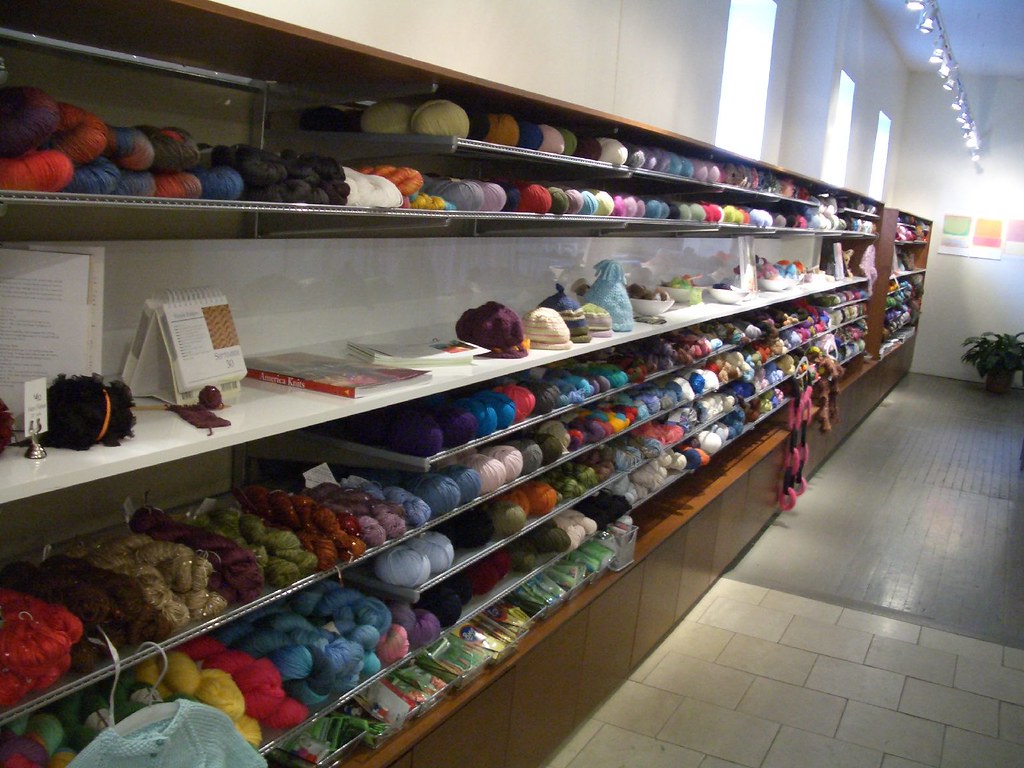Special notice #2: I am about to bare my innermost secrets, and I hope you won't think I'm a horribly gross person. Thank you.
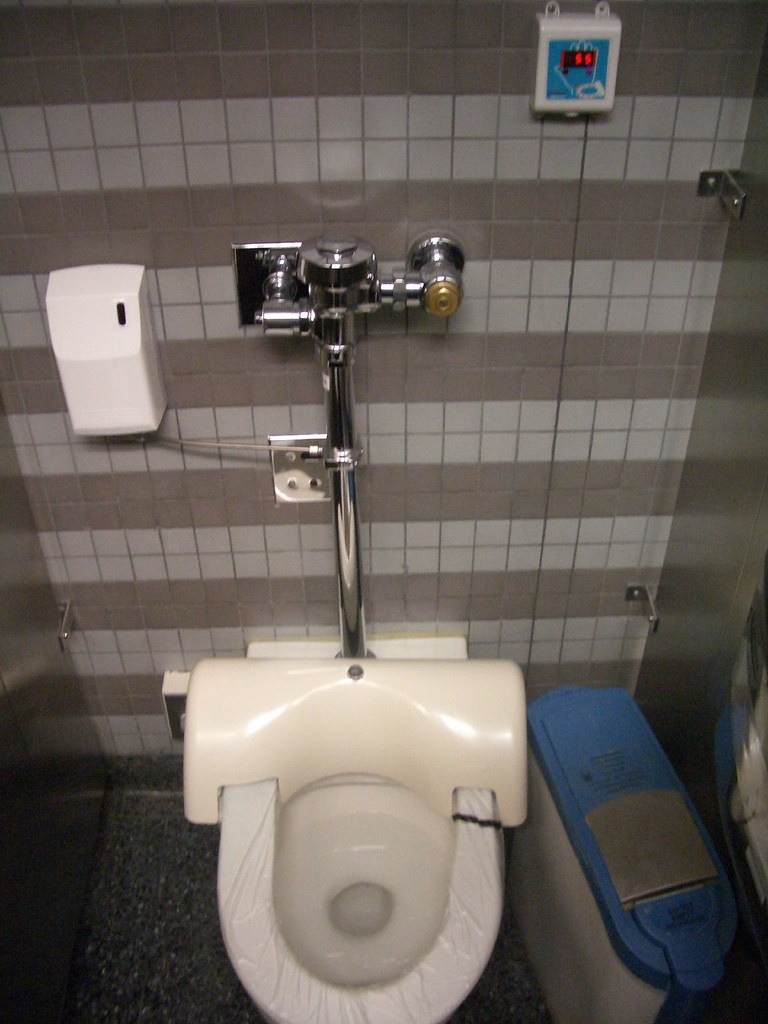 So I've been thinking about bathrooms for the past few weeks, and the trend that's shouting the loudest is cleanliness. We are obsessed with staying clean. This means toilets that flush automatically, plastic seat covers that whirr and rotate, sinks and soaps that sense your hands, paper towels that release with a wave, and fewer and fewer doors. Fewer doors? It's one less thing to touch.
So I've been thinking about bathrooms for the past few weeks, and the trend that's shouting the loudest is cleanliness. We are obsessed with staying clean. This means toilets that flush automatically, plastic seat covers that whirr and rotate, sinks and soaps that sense your hands, paper towels that release with a wave, and fewer and fewer doors. Fewer doors? It's one less thing to touch.We don't want to touch anything in the bathroom. We think every handle, button and lever is covered with an army of germs. And while Google produces a plethora of articles stating that my desk contains 400 times as many germs as a toilet seat, the notion persists that bathrooms are the dirtiest places on earth.
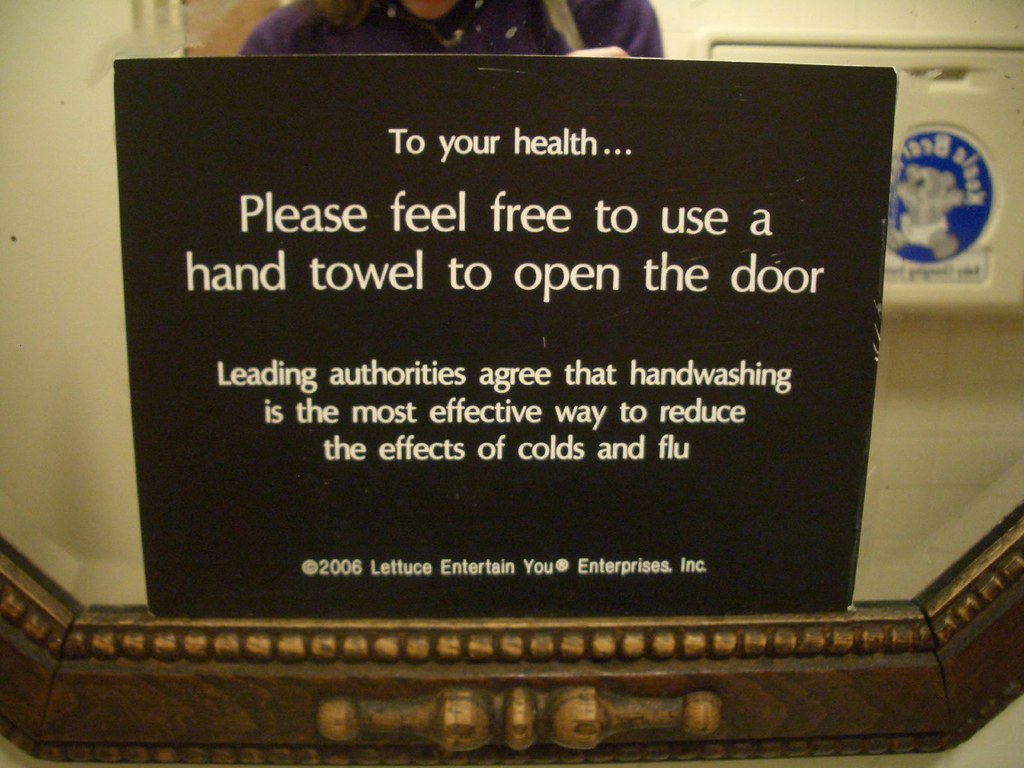
Bathrooms may be germy, but I still think our germophobia manifests itself in strange ways. This sign in RJ Grunts inspired two reactions, one right after another. "Hey, that's resourceful," followed by "Wait, what? Who has the time?" The logistics of actually grabbing a paper towel, using it to open the door, and then turning back to reach the garbage can are a little absurd to me.
Then again, that door probably has tons of germs. What if I got sick from touching it? What if the flu was going around and some lady had it and she touched the door and then I touched the door? I better use a paper towel. On second thought, I should wear gloves and a face mask. You know what, maybe I'll just stay home.
I think that when taken to its extreme, all this sanitary behavior can lead to isolation (not to mention stronger bacteria). People don't shake hands because they are nervous of passing on germs. Fine, why don't we all live in sterile sanctuaries, germ-free and human-interaction-free? We wouldn't have any social skills, but at least we'd have our health.
I think that for all the convenience these amenities bring, the main goal of bathroom sanitation is just to get people to wash their hands. If we would all just wash our hands, every day, every time, a lot of these fears would go away. Because, as my dad used to say, "I trust you. It's the other people that I don't trust." I might wash my hands, but if the woman before me did not, then by touching the doorknob I am erasing the effects of my own good habits. In other words, bathrooms need to do more than inspire me to wash my hands; they need to assure me that everyone else washed their hands too. It's kinda like driving - the system only works if everyone follows the rules.
So here's the embarassing part. I...don't always wash my hands. I mean, I do, the vast majority of the time. But not every single time. Once in a while, I'm in a rush. The hot-air dryer takes too long. The soap dries out my hands. There's no more paper towels. Plus, if nobody else is there, well, I feel like nobody will ever know. (Of course, writing this post kills that theory, but until now, I had that).
And I have reason to believe I'm not alone. Some friends have said that they usually wash hands in public places, but not always in their homes. I asked my boyfriend if guys always wash their hands, fully assuming that they do. He said, "Not always. But I thought girls always washed their hands!" Each thinking the other was the cleaner one, we had a good little embarassed laugh about it. But he echoed my sentiment - if somebody else is in the bathroom, it's a no-brainer.
So that's the key here - I would never, ever skip handwashing if somebody else was there. Because that social pressure is huge. If I just walk right out, what will they think of me? I know that if I saw them beeline from stall to exit, I would certainly judge them, however hypocritically.
This story details an observational survey where Harris Interactive researchers stood in bathrooms. They recorded that 90% of women and 75% of men washed their hands. But my problem with this study is fundamental: a person was standing in the bathroom, watching. If they had used discreet video cameras, I'm guessing the results would have been lower.
Now, I am by no means condoning wash-skipping behavior. I should wash my hands every single time; so should everyone. Handwashing is one of those universal tenets, like "Breakfast is the most important meal of the day." We know it's the right thing to do, and there's lots of persuasive statistics around it controlling the spread of disease. But obviously, this message either hasn't gotten out, or hasn't resonated with its target. So how do we design bathrooms that motivate people to wash their hands?
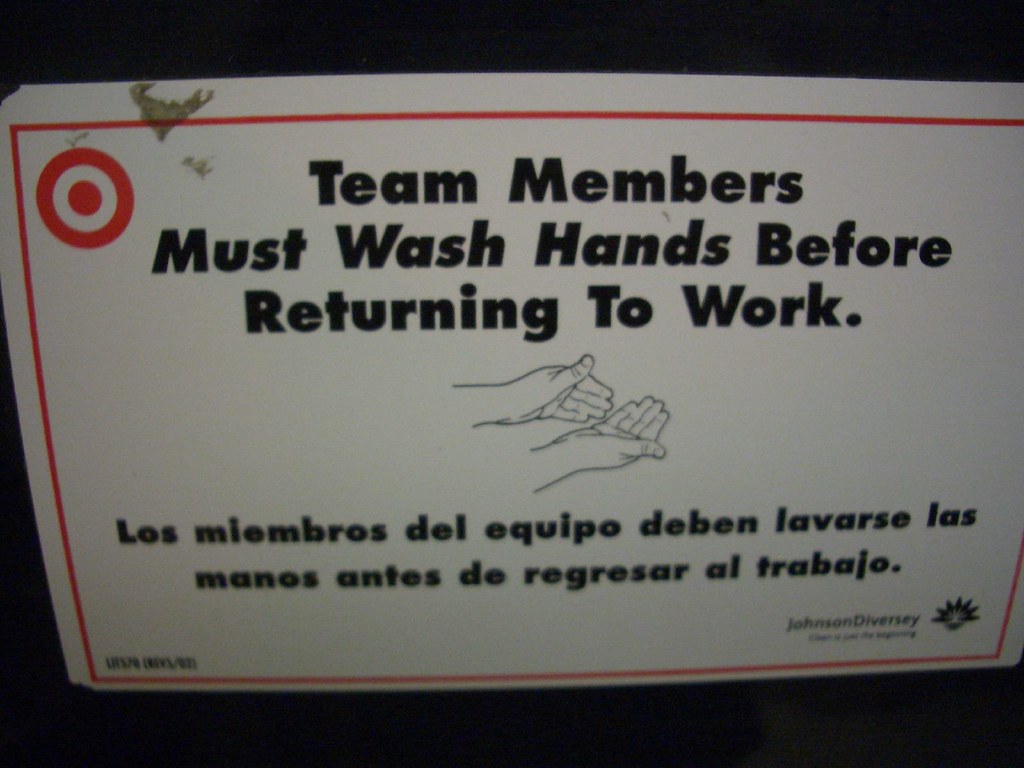
1. We can force it. Employees must wash hands, why not shoppers? We think it's part of the process, and we take it seriously here at Target/Starbucks/Disney World. You must wash hands in order to leave the bathroom. Perhaps you pay a dollar to enter, and after washing hands, that dollar is returned to you. Perhaps the door locks until your hands are clean. Of course these ideas are silly, but you get the point. A big red sign saying "SHOPPERS MUST WASH HANDS" would probably work just fine.
2. We can improve it. Here's some good-smelling lotion soap and soft paper towels. Here's a clean, dry counter to put your purse on. In fact, here's a special holder just for said purse, because we know how awkward it is to wash your hands while keeping it on your shoulder. Here's some flattering lighting and an inviting faucet handle. Here's some warm water followed by some cool water. Here's a big mitt that massages your hand as it washes it. Surely we can think of ways to make the process delightful and interesting. None are silver bullets, but they might begin to alleviate some of the barriers. For example, I find that washing my hands is more fun when they have that foamy soap. Negligible change in infrastructure; big difference in the experience.
 3. We can socially influence it. This to me is the only surefire way to get average Joes and Josephinas to change their ways. It's also the toughest to imagine solutions for, but here goes. We can make people go to the bathroom in pairs. We can install windows in front of the sinks, so the people in the club/restaurant/office can see in. We can set up a "clean hand check" outside the door. We can make the sink area unisex. We can show photos of hip, beautiful people washing their hands. Or, we can hire Harris Interactive to stand in every restroom.
3. We can socially influence it. This to me is the only surefire way to get average Joes and Josephinas to change their ways. It's also the toughest to imagine solutions for, but here goes. We can make people go to the bathroom in pairs. We can install windows in front of the sinks, so the people in the club/restaurant/office can see in. We can set up a "clean hand check" outside the door. We can make the sink area unisex. We can show photos of hip, beautiful people washing their hands. Or, we can hire Harris Interactive to stand in every restroom.Social pressure can be used in all sorts of ways, in order to get people to do the right thing. It's pretty powerful. More than their own health (a sometimes distant, intangible thing), social rejection is immediate, and we all know how it feels. I think people would do a lot in order to avoid being judged, even by complete strangers. They might even wash their hands.
---
 For more Bathroom Blogfest, see:
For more Bathroom Blogfest, see:Church of the Customer
Customers Are Always
Customer Experience Crossroads
Experienceology
Fast Company Now
Flooring the Consumer
What I Do For a Living
PS: After writing this incredibly embarassing post, I can assure you that I will never skip handwashing again.



